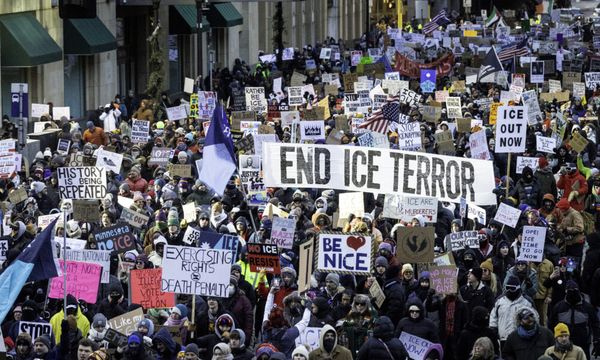
Forty-four French farmers’ organisations have signed an open letter urging President Emmanuel Macron to “clarify” France’s stance and take action to block the South American Mercosur trade agreement, which they regard as both unfair and even dangerous.
The 44 signatories of the open letter, published Tuesday, are concerned that Macron has now changed his tone and abandoned France's red lines with regards to the trade deal.
The signatories include the Confédération paysanne (French Peasant Confederation), the CGT (General Confederation of Trade Unions), Greenpeace, and France Nature Environnement (FNE).
The EU-Mercosur deal aims to create one of the largest free trade zones in the world, covering over 700 million people and nearly 25 percent of global GDP.
Linking the EU to Argentina, Brazil, Uruguay and Paraguay, its goal is to reduce tariffs and trade barriers, making it easier for businesses on both sides to export goods.
The European Commission formally endorsed the deal in September and now wants the 27 member states and the European Parliament to approve the agreement before the end of 2025.
EU Commission endorses Mercosur deal despite French reservations
France has long been at the forefront of opposition to the agreement, warning that the influx of cheap Latin American produce risks undermining Europe’s agricultural sector.
In February, Macron criticised what he described as a "bad text" during his visit to the Paris Agricultural Show, following months of protests by farmers against the draft agreement.
He said he was seeking a "blocking minority" within the EU, which would bring together enough countries to prevent the text from being implemented.
In an attempt to reassure France, the European Commission proposed in early September "reinforced" safeguard clauses in the event of a sudden increase in imports from Mercosur or a sharp drop in prices, with "enhanced monitoring" of "sensitive products" such as beef, poultry, rice, honey, eggs, garlic and sugar.
These measures are largely insufficient in the eyes of agricultural unions, which have maintained their opposition to the text.
Protect EU sectors, consumers
Macron declared last Thursday following a European summit in Brussels, that it was premature for France to make a final decision on the trade agreement, while emphasising that steps were being taken "in the right direction".
"The French government, like the others, is waiting for answers. But all this is moving in the right direction, to protect the most exposed sectors, and also to protect European consumers," he told a press conference.
"We have safeguard clauses, strengthened customs controls, support for livestock farming, and many accompanying measures (...) that are currently being implemented. We are waiting for all of this to be finalised," Macron said.
But in the letter, the signatories expressed alarm that the text had already been forwarded to the 27 member states "for express ratification without parliamentary consultation" and that no changes had been made to the text since December.
French farmers protest EU-Mercosur deal, block motorways in southern France
Representatives of the Confédération Paysanne said they did not feel reassured after a meeting with Macron's agricultural adviser on 16 October.
"We left worried, we can sense that Emmanuel Macron is changing his mind," spokesperson Thomas Gibert told French news agency AFP.
According to Gibert, "there is a strategy to make us swallow the pill: they say they refuse to sign the agreement as it stands, they try to grab safeguard clauses, or mirror clauses on some products. But that will not change the import of quotas" of Latin American products.
Nearly 80 percent of French farmers believe that the EU-Mercosur free trade agreement "represents a threat to French agriculture," according to a survey by Cevipof and Agro Toulouse conducted between April and June among 1,082 farmers.
Protecting interests
Earlier this month the EU sought to again assuage farmers' concerns by detailing how it will protect European producers.
The commission said it would send assessments of the impact of Mercosur imports of those products to the parliament and member states every six months.
It would kickstart a probe if the price of Mercosur imports is at least 10 percent lower than an identical EU product, and if the volume of duty-free imports rises by more than 10 percent.
French farmers announce nationwide protest over trade deals and food sovereignty
Any investigation would be completed within four months. If there is "serious injury", the EU could reimpose tariffs.
The commission also said it would launch an investigation if requested by an EU state "where there are sufficient grounds" and would activate the measures "in no more than 21 days".
"The commission will be ready to act swiftly and decisively in case of need to protect the interests of our agri-food sector," EU agriculture commissioner Christophe Hansen said in a statement.
(with newswires)







